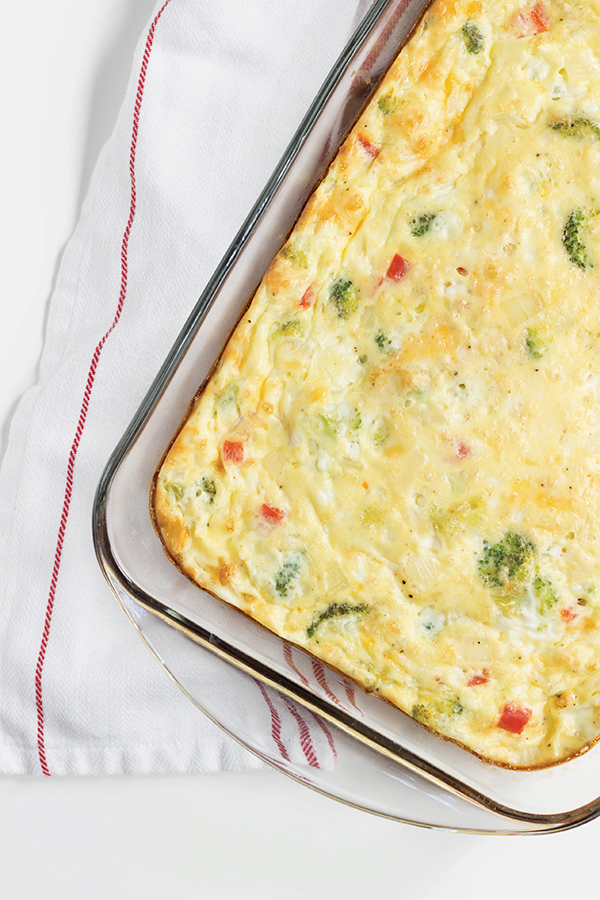Eggs as a Nutrient-Rich 'First Food'
Sep 07, 2020 03:31AM ● By Family Features
Eggs are for everyone, including babies and toddlers, according to the 2020 Dietary Guidelines Advisory Committee that released its Scientific Report outlining nutritional recommendations for Americans. For the first time, this committee, comprised of leading doctors and nutrition scientists, included nutritional guidance for younger children.
The committee recommends eggs as a first food for babies and toddlers since they provide eight essential nutrients that can help build a healthy foundation for life at a time when every bite counts.
Eggs provide nutrition for children and moms-to-be, as well. However, the report found most pregnant women and kids need more choline – an essential nutrient critical for brain health – in their diets.
According to research published in the “Journal of the American College of Nutrition,” 92% of pregnant women don’t get enough choline in their diets. Choosing foods high in choline, like eggs, can help pregnant women consume enough of this essential nutrient, helping a baby’s brain and spinal cord develop properly. Just two eggs provide more than half of the recommended daily amount of choline.
At only 70 calories, one egg contains 6 grams of high-quality protein and all nine essential amino acids. Eggs are also a source of vitamin B12, biotin (B7), iodine, selenium, high-quality protein, riboflavin (B2) and pantothenic acid (B5). Additionally, eggs contain lutein and zeaxanthin that can help protect your eyes from harmful blue light that comes from electronic devices.
The committee recommends introducing eggs when your baby is ready for first foods, which may help reduce the chances of developing an egg allergy.
In Your Kitchen
Eggs are a nutritional powerhouse that contribute to health and well-being at every age, and there are plenty of ways to enjoy eggs beyond the basic boiled, scrambled or sunny-side-up. In fact, eggs work well in meals all day long. Toss hard-boiled eggs in a salad, top a sweet potato with an egg for lunch or try a spinach and mushroom frittata for dinner.
One simple way to introduce eggs as a first food is a soft and fluffy egg casserole. You can also incorporate veggies for some added nutrition, since eggs can help you better absorb the nutrients found in vegetables, such as vitamin E and carotenoids like lutein and zeaxanthin.
You can adapt a Veggie Egg Casserole to your child’s development and motor skills by cutting small squares or making a simple mash.
Find more kid-friendly recipes and advice about introducing eggs to your youngest family members at EggNutritionCenter.org.

Veggie Egg Casserole
Recipe developed by Stacey Mattinson, RD
Prep time: 20 minutes
Cook time: 40 minutes
Servings: 4
- Nonstick cooking spray
- 1/2 sweet onion
- 1 red, yellow or orange bell pepper
- 1 head broccoli florets
- 2 teaspoons canola, avocado or olive oil
- 1 dozen eggs
- 2 cups low-fat cottage cheese
- 1 cup shredded cheese
- 1 teaspoon baking powder
- 1 tablespoon flour
- salt, to taste
- pepper, to taste
- Preheat oven to 350 F. Grease 9-by-13-inch pan with nonstick cooking spray.
- Chop onion and bell pepper to age-appropriate sizes. Pick apart broccoli florets into small pieces and remove most of stems.
- Heat medium-sized frying pan over medium heat. Add oil and swirl around pan. Add onions and cook 3-4 minutes until they start to soften. Add broccoli and bell pepper. Mix with onions and add salt and pepper, to taste. Cook 1-2 minutes then cover with lid to steam another 2-3 minutes until broccoli is bright green. Remove veggies from stovetop.
- In large mixing bowl, beat eggs. Add cottage cheese, shredded cheese, baking powder and flour. Add veggies and salt and pepper, to taste. Transfer to prepared pan and bake 40 minutes.
